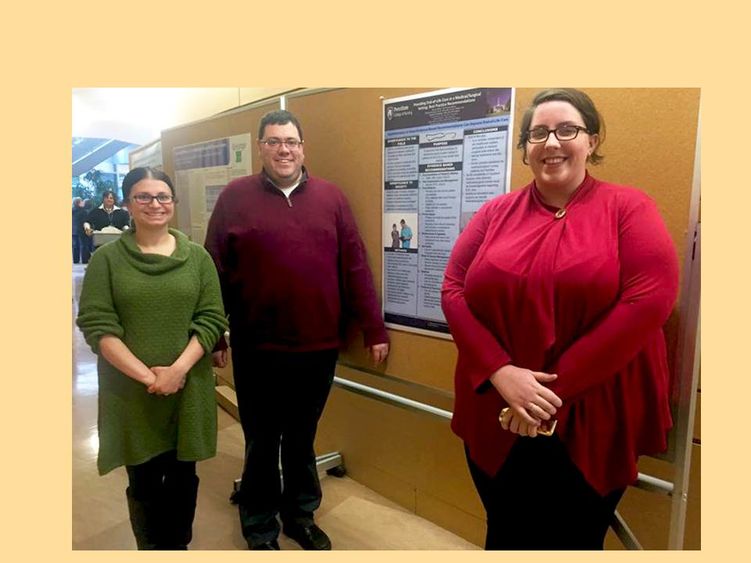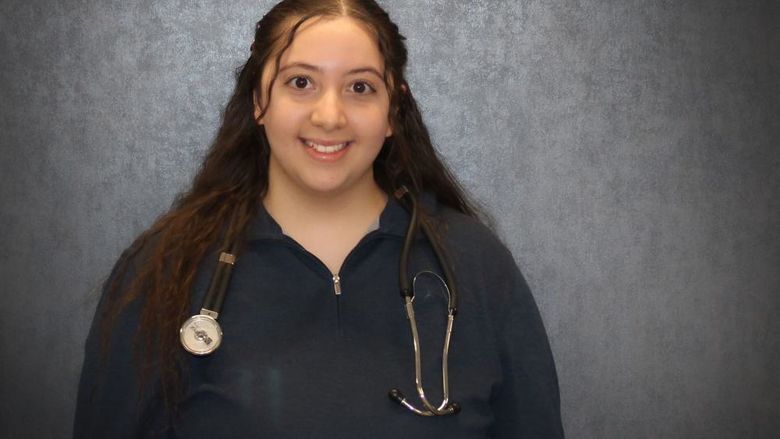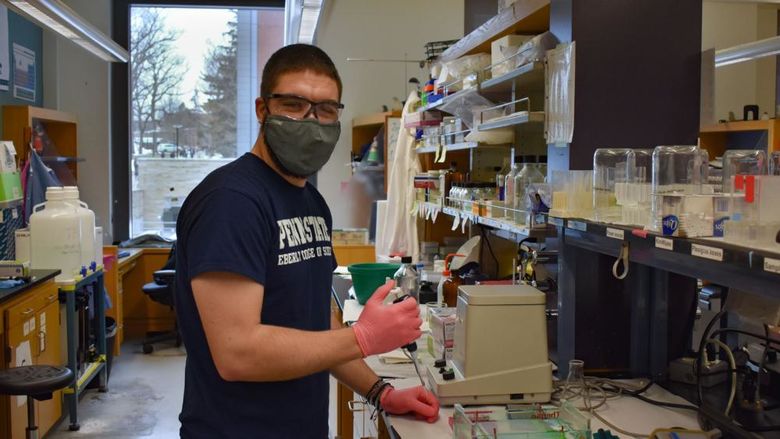
Honors nursing student Kiernan Riley recently presented her research at the Seventh Annual Perspectives in Nursing and Healthcare Conference, held at Geisinger’s Henry Hood Center for Health Research in Danville. With her, from left, is nursing instructor Justina Ferguson, and assistant clinical professor of nursing, Dr. Michael Evans, who is also the campus' assistant chief academic officer.
DUNMORE, Pa. — Kiernan Riley, a senior honor’s nursing student at Penn State Worthington Scranton, was awarded a Penn State Student Engagement Network grant to study the effects of a teaching intervention about organ donation on high school students’ attitudes and intent to register as organ donors when applying for drivers’ licenses.
The project is intended to address the worldwide organ shortage and is a continuation of the work Riley did in her spring Nursing 200W Principles of Nursing Research and Evidence Based Practice class.
Michael Evans, assistant clinical professor and assistant chief academic officer at Penn State Worthington Scranton, will serve as her mentor for this engagement experience.
Riley has been working with Evans as his undergraduate research assistant for the past two years. He will serve as her mentor on this project and help her successfully execute her own research.
“In Pennsylvania high schools, there is no formal education on organ donation,” Riley said. “The purpose of this study is to identify and subsequently implement an educational intervention that will provide facts and dispel myths surrounding organ donation to high school students, and to assess if this educational intervention is effective in increasing knowledge, attitudes, and intent to register as an organ donor at the department of motor vehicles.”
She believes it is important to address this population about organ donation, since they will be making the choice to register as an organ donor in the near future when registering for their driver’s license.
“It is important that this population has the correct knowledge and is able to make an informed decision in this process,” Riley said. “Identifying an effective teaching strategy and disseminating pertinent findings can help address the current nationwide organ shortage, as well as make a difference in areas of Lackawanna County.”
Over the summer of 2017, Riley will work to secure the necessary approval for this research project; contact high schools for approval to implement the intervention; and create a teaching intervention and evaluative survey which would look at attitudes, willingness and intent to register.
She also will use this intervention in both a high socio-economic school, as well as a low socio-economic school, to evaluate if there is a fundamental difference in the survey findings related to socioeconomic status. In the fall, the created intervention will be presented at local schools and data collected from the surveys created.
That data will be analyzed and the findings presented at the Penn State Undergraduate Research Fair and entered to present at the Eastern Nursing Research Society Conference.
The Penn State Student Engagement Network offers grant funding for students interested in expanding their undergraduate experience beyond the classroom. Grants of up to $3,000 are available to students who are interested in pursuing experiential learning endeavors.
Students may apply for financial support for unpaid internships or research opportunities, living expenses, travel costs, conference fees and more. The number and amount of grants will vary based on the number of applications received; however, there is a maximum allotted amount of $3,000 per applicant.
The Student Engagement Network is a joint initiative of Undergraduate Education, Student Affairs, and Outreach and Online Education, and connects Penn State students with opportunities that empower them to grow beyond the classroom and achieve their highest potential.
Students can explore, plan and execute successful experiential learning opportunities that empower them to have a positive impact on our community and world.




